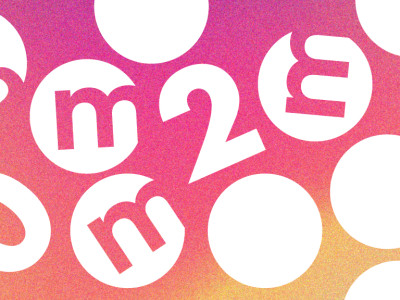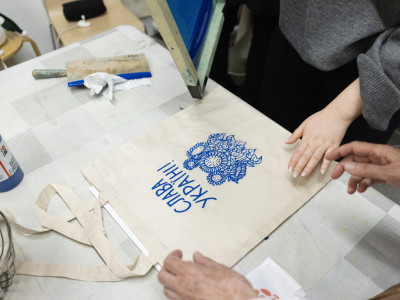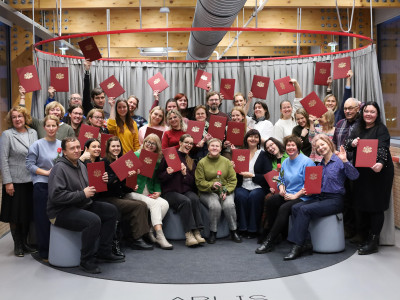On 27 September 2023, the conference “Localising the Sustainable Development Goals through Museums and Libraries II” was held online, organised by the Latvian Museum Association, the Latvian Librarians’ Association and the Latvian National Commission for UNESCO, with the support of UNESCO Participation Programme and British Council Office in Latvia. Read messages from the conference here.
The conference highlighted museums and libraries as community centres where cooperation, accessibility and implementation of various activities take place, viewed from the prism of sustainable development goals not only locally, but on a wider scale. The participants from Latvia, Estonia, Lithuania, Moldova and Georgia exchanged information about the current trends and most successful projects, where museums and libraries are working with a wide range of sustainable development topics, including environmental degradation, climate change, reducing of social inequality and resilience of communities.
The “Green Libraries” project of the Georgian Library Association, the animal rehabilitation centre and educational programmes of Klaipeda Sea Museum, as well as the “Sustainable Museum” certificate created by the Estonian Museum Association, demonstrated how a library can initiate the greening of a degraded city environment, involving communities; whereas a museum can warn about the pollution of the Baltic Sea and the possible consequences, as well as become a model of sustainable functioning. The Audio-Sensory Library of Lithuania and the project of Cēsis regional museum “A Prescription to the Museum” were proof of the readiness of libraries and museums to engage in reducing the risks of health, inequality and loneliness. On the other hand, the support of the Librarians’ Association of Moldova provided to the refugees from Ukraine and the annual media literacy training for the librarians, provided by the National Library of Latvia, highlighted the unique potential of the libraries to strengthen the resilience of communities in politically difficult circumstances. The Estonian Librarians' Association campaign for the support of Sustainable Development Goals is an excellent example of how the Global Goals can be explained to a wider public.
After the conference, a master class by Henry McGhie, an expert of Sustainable Development Goals in the field of culture, was held in the British Embassy in Latvia, during which the partners continued working on the handbook “Localisation of Sustainable Development Goals in Museums and Libraries”. The launch of the handbook is planned for November this year. After the master class, the partners attended a reception held by Paul Brummel, the British Ambassador in Latvia.
Zane Grīnvalde, Chair of the Board of the Latvian Museum Association: “At this conference, we learned excellent examples and stories of experience, which reaffirmed the contribution of the staff of memory institutions to the implementation of sustainable development goals. Museums and libraries play an important role in the local community, as well as on a larger scale. Together with our partners, we are going to continue the initiatives that have been started and to create new ones, offering diverse activities and opportunities for learning, thereby inspiring the museum and library professionals for new projects.”
Māra Jēkabsone, delegate from the Latvian Librarians’ Association, expressed hope “that this conference was not a conclusion but a stop. Not only did the project expand the range of partners of cooperation and offer new experiences, but it also moved by the achievement of the museums and libraries, based mostly on the ability to see a solution and the courage to implement it. Our next goal, after the successful geographical expansion, is to enlarge the scope of the areas of the cultural sector so that the libraries and museums would be joined by the archives and galleries in the implementation of sustainable development goals.
Baiba Moļņika, Secretary General of the Latvian National Commission for UNESCO, emphasizes that “People everywhere in the world are currently facing global challenges, and, when facing them, there is no better solution than wide partnerships; the conference reaffirmed that memory institutions are able to identify environmental, social, as well as economic problems and to offer innovative solutions to them.”
Significant support in the creation and execution of the conference was also provided by the team of the British Council Office in Latvia. Kristīne Ļeontjeva, Community Development Consultant of this organisation, who was one of the participants of the conference, states: “Museum and library staff have an opportunity to play an essential role in the implementation of sustainable social changes in the local communities - to be the ambassadors of change and opinion leaders, who introduce new ideas, educate and activate the population. Museums and libraries can be community centres, where the residents meet, create a dialogue and gain inspiration to participate in the life of the local community, to identify the challenges and opportunities in their community, as well as to implement initiatives that improve their living environment and strengthen their sense of belonging to it.
On 26 and 28 September, the conference guests had an opportunity to get acquainted with the latest initiatives in the work of the Latvian museums and libraries in person, by meeting their colleagues at the Latvian National Museum of Art, the National Library of Latvia, Žanis Lipke Memorial, Valmiera Integrated Library, Valmiera Museum, Eduards Veidenbaums’ Museum “Kalāči” and Valmiera Regional Council.
The Conference was held in the framework of the project “Museums, Libraries and Sustainable Development Goals: Adapting of Common Approaches to Local Scale”, which is implemented with the financial support of UNESCO Participation Programme.
So far, the conference has been viewed online by a total of more than 1000 people, and the recording of its proceedings is available to everyone on the Facebook.com and Youtube.com channel of the Latvian Museum Association.



